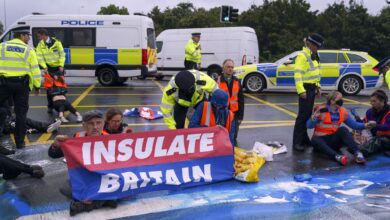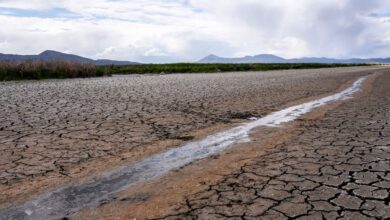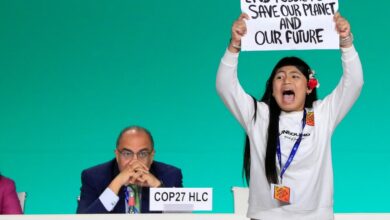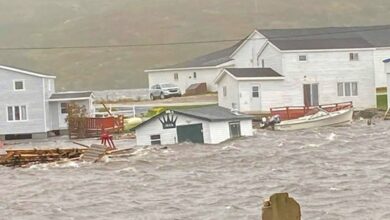Firefighters ‘won’t be able to answer all calls’ as deadly heatwaves push services to ‘crisis point’
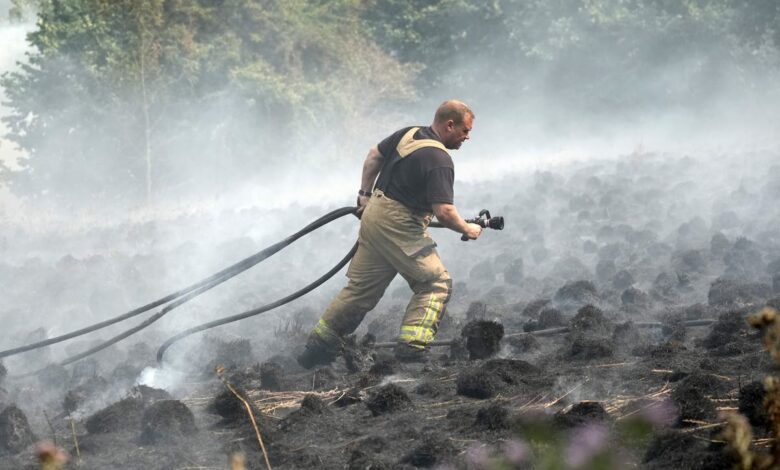
Firefighters have warned they will not be able to attend all call-outs as the second deadly heatwave in weeks stretches services already at “crisis point”.
Senior staff from crews around the country told The Independent that unprecedented demand and a lack of resources meant crews are not properly equipped to respond to the scale of heat-related incidents caused by the climate crisis.
They also raised concerns that drought conditions could hamper their abilities to tackle wildfires if lakes and ponds can no longer be used to access water.
A four-day extreme heat warning has been issued by the Met Office, as well as an “exceptional” warning for how severe fires could become if started.
The new heatwave comes just weeks after the record-breaking hot spell in July saw dozens of homes destroyed by wildfires on what London mayor Sadiq Khan said was the busiest day for crews since the Second World War.
Riccardo la Torre, from the Fire Brigades Union (FBU), said crews couldn’t attend all calls in July and he was “convinced” the picture would be the same for this heatwave. “We are going to be facing the same conditions, with the same severely decimated resources.”
“I don’t think we can publicly any longer have the expectation the fire services is equipped to deal with incidents and conditions such as what we are experiencing at the moment.”
Mr La Torre said there were more than 11,000 fewer firefighters in the workforce compared to 2010.
“You can’t take a fifth of the workforce away and expect it to deal with the existing workload, let alone this increasing workload with the climate crisis,” he added.
Mr La Torre also said drought conditions were also “an additional obstacle” for firefighters if they could not take water from depleted lakes and ponds.
“If it is not there, or not deep enough to use – to draw water from – of course, that will affect our access to water,” he said.
“That’s all come to a head. I think we all saw it come crashing down these last few weeks,” he said. “This is crisis point. The word crisis isn’t used lightly,” Mr La Torre said.
Global warming is increasing the frequency of heatwaves and dry spells in the UK, helping to set the conditions for wildfires.
The number of wildfires in England and Wales had already surpassed the previous year’s total by May this year, and with the climate crisis fuelling the issue, firefighters say they need more resources and funding to deal with it.
Andy Elliott, a wildfire tactical advisor at the Dorset and Wiltshire Fire and Rescue Service, an area that is subject to 107 wildfires a year on average according to the local council. told The Independent the current surge in blazes meant crews could not attend all calls.
The July heatwave saw a surge in fires across the country, including one in Wennington, east London
“Everybody is working flat out… that means that some calls go unanswered or will be responded to at a later time,” he said.
“At the moment, and during these periods of high temperature, periods of drought, the number of fires is just increasing and there are so many field fires, grass fires that firefighters are out all the time and they’re not getting that time to recover.”
He said that meant some calls would go unanswered or would be responded to later as the fire service prioritises incidents that risk life and property.
For example, if a fire alarm goes off, the fire service might have to ask the caller to do a visual inspection and call them back if there is a fire.
Wildfires broke out around the country during the July heatwave
Dorset and Wiltshire Fire and Rescue Service attended a field fire in Winterbourne Stoke earlier this week

